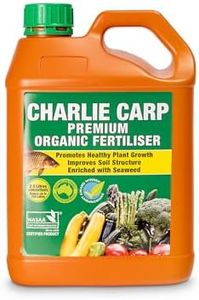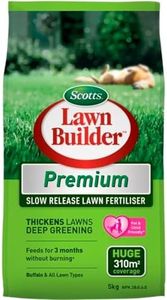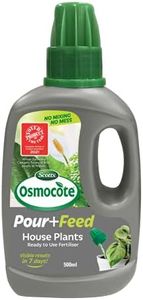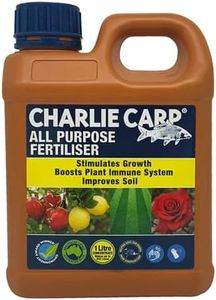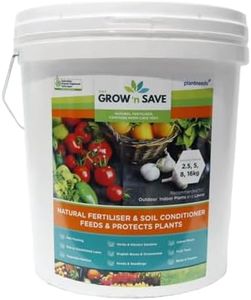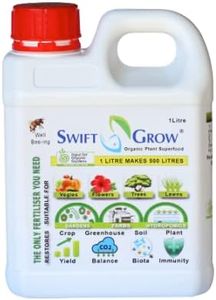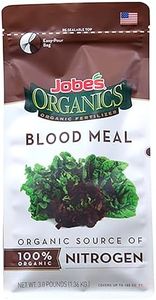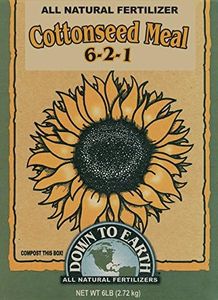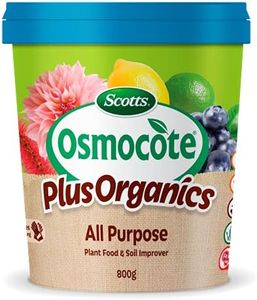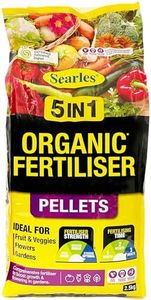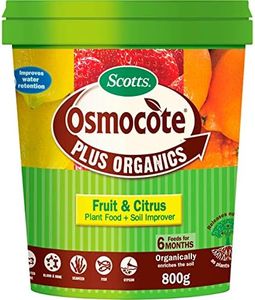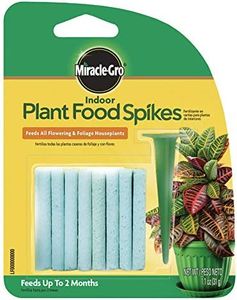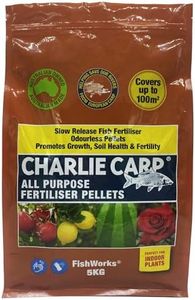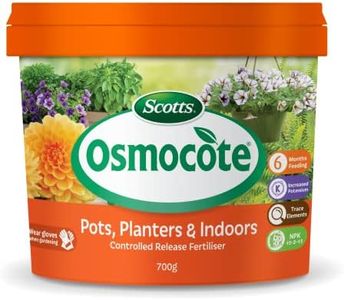We Use CookiesWe use cookies to enhance the security, performance,
functionality and for analytical and promotional activities. By continuing to browse this site you
are agreeing to our privacy policy
10 Best Garden Fertilizers
From leading brands and best sellers available on the web.By clicking on a link to a third party's website, log data is shared with that third party.
Buying Guide for the Best Garden Fertilizers
Choosing the right garden fertilizer can make a big difference in the health and growth of your plants. Fertilizers provide essential nutrients that help plants grow strong and productive, but with so many options available, it can be confusing to know which one is best for your garden. The key is to match the fertilizer to your plants’ needs, your soil condition, and how you prefer to apply it. Understanding a few important specifications can help you make a choice that will get great results and make gardening easier and more effective.N-P-K RatioThe N-P-K ratio tells you how much nitrogen (N), phosphorus (P), and potassium (K) is in a fertilizer. These are the primary nutrients plants need, and the numbers on the label (like 10-10-10) tell you the percentage by weight of each nutrient. Nitrogen helps plants grow leaves and stems, phosphorus promotes strong roots and flowers, and potassium supports overall plant health. A balanced fertilizer has equal numbers, while one with higher nitrogen is for leafy plants. Lower or higher ratios might be better suited for certain plants or stages of growth. To pick the right one, think about which part of plant growth you want to boost and match it to your garden’s needs.
Type: Synthetic vs. OrganicFertilizers come in two broad types: synthetic (chemical) and organic (natural). Synthetic fertilizers act quickly and give plants a fast nutrient boost, which is useful if quick results are needed. Organic fertilizers feed plants more slowly and improve soil health over time, making them great for long-term soil improvement and for gardeners who want to garden more naturally. Your choice will depend on whether you value immediate, visible results or want to nurture your soil for the future.
Form: Granular, Liquid, or Slow-ReleaseThe form of fertilizer affects how and when nutrients reach your plants. Granular fertilizers are dry and easy to sprinkle on the soil, often used for general feeding. Liquid fertilizers are mixed with water and give plants a quick nutrient boost, great for fast-acting results. Slow-release fertilizers provide nutrients gradually over a longer period, reducing how often you need to fertilize. Think about how much time and effort you want to spend feeding your plants and how often you want to reapply fertilizer when picking the form.
Specialty FormulasSome fertilizers are made for specific plants, like roses, tomatoes, or lawns, and have special nutrient mixes tailored for those needs. If you have many of one type of plant, using a specialty formula can help them thrive because it targets what they need most. For a mixed garden, an all-purpose fertilizer is usually a safe choice, but specialty formulas can give your favorite plants an extra advantage.
MicronutrientsBesides the main N-P-K nutrients, plants also need small amounts of micronutrients like iron, magnesium, and calcium. Some fertilizers include these micronutrients, which can help prevent plant problems and improve overall health, especially if your soil is lacking. If your plants show signs of deficiency or you know your soil is lacking in certain minerals, a fertilizer with added micronutrients can be very beneficial.
